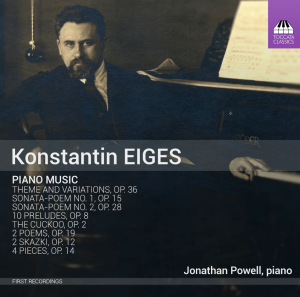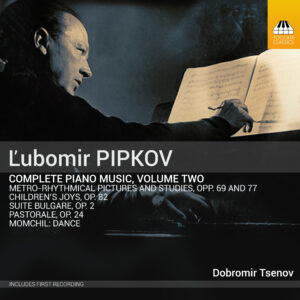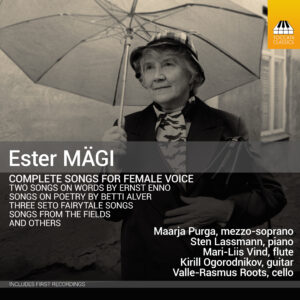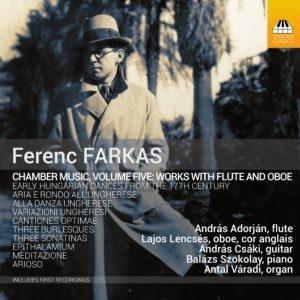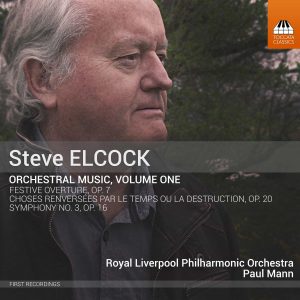Search Results for "星露谷物语莱纳斯喜好-【✔️推荐KK37·CC✔️】-服装设计兼职接单-星露谷物语莱纳斯喜好li5b3-【✔️推荐KK37·CC✔️】-服装设计兼职接单sp6s-星露谷物语莱纳斯喜好ee318-服装设计兼职接单42jt"
Showing results for ciò cuckoo csáki cui cuckoo choses coachees csáki ciò cuckoo csáki cuckoo cio csaki csaki cio csaki
Konstantin Eiges: Piano Music
Konstantin Romanovich Eiges (1875–1950), a member of a gifted Jewish family from eastern Ukraine, studied both in medicine and music in Moscow, but soon became known as an outstanding composer and pianist. His music bears the impress of Taneyev, his teacher, and of Skryabin and has points in common with his friends Medtner and Rachmaninov, but this first recording of his piano music reveals a figure who deserves to be remembered in his own right.
Jonathan Powell, piano
Ľubomir Pipkov: Complete Piano Music, Volume Two
Ľubomir Pipkov (1904–74) was one of the leading members of the so-called ‘second generation’ of Bulgarian composers. In later life he became fascinated with the ancient heritage of Bulgarian folk-music, producing a series of what he called ‘metro-rhythmical studies’ – piano miniatures that combine melodic immediacy and rhythmic complexity, with a character that might be loosely characterised as sounding like ‘Prokofiev meets Bartók in the Balkans’. Indeed, Pipkov saw in the irregular rhythms of Bulgarian folk-dance a parallel with the rhythmic experimentation in contemporary composers like Debussy, Ravel and Stravinsky.
Dobromir Tsenov, piano
Ester Mägi: Complete Songs for Female Voice
For the latter part of her long life, Ester Mägi (1922–2021) was known as ‘the First Lady of Estonian music’, her modest, charming disposition endearing her to all who met her. But her music reveals the true strength of her personality, and this first complete recording of her songs for female voice – over half a century of compositional activity – covers a striking emotional range, from the ambivalent feelings of falling in love to dramatic ritual invocations of startling force and power. Many of the earlier songs are openly romantic, but Mägi soon began to tap into the hypnotic energy of Estonian runic folksong, with its echoes of village life and its incantations intended to placate a hostile environment.
Maarja Purga, mezzo-soprano
Valle-Rasmus Roots, cello
Mari-Liis Vind, flute
Kirill Ogorodnikov, guitar
Sten Lassmann, piano
Ferenc Farkas: Chamber Music, Volume Five – Works for Flute and Oboe
This twelfth release in the Toccata Classics exploration of the music of Ferenc Farkas (1905–2000) once again puts his chamber music with flute in the spotlight – here with an oboe chaser. As with previous albums in this series, the music highlights the characteristics that make Farkas’ music so appealing: catchy tunes, transparent textures, buoyant rhythms, a fondness for Baroque forms and a taste for the folk-music of his native Hungary that marks him out as a true successor to Bartók and Kodály. The works in this recording are almost all reworkings – by Farkas or the two soloists here – of music first written for different forces and now taking on a new lease of life.
András Adorján, flute (Tracks 1–15)
Lajos Lencsés, oboe (Tracks 15, 19–22), oboe d’amore (Tracks 23–26), cor anglais (Track 27)
András Csáki, guitar (Track 12)
Balázs Szokolay, piano (Tracks 1–11, 13–21)
Antal Váradi, organ (Tracks 22–27)
Steve Elcock: Orchestral Music, Volume One
The English composer Steve Elcock (b. 1957) has been writing music since his teens, but with virtually no contacts in the musical world, told no one what he was doing – and thus has evolved a compelling symphonic style entirely his own, combining virtuoso orchestral writing with a sense of momentum that has its roots in the Nordic-British tradition of Sibelius, Nielsen, Simpson, Brian and similar figures. His Third Symphony is a vast canvas generating fierce energy and titanic violence, leavened at times by a sardonic sense of humour. Choses renversées par le temps ou la destruction is a dark symphonic triptych where fragile beauty is constantly at threat from the forces of ignorance. The breezy, buoyant Festive Overture, by contrast, has a Waltonian swagger that barrels on with relentless good humour.
Royal Liverpool Philharmonic Orchestra
Paul Mann, conductor
James Clark, leader
Richard Casey, harpsichord Tracks 4, 6
Ottorino Respighi: L’Opera Per Pianoforte Solo
di Potito Pedarra Scrive Lorenzo Arruga presentando alcune “liriche più famose [di Respighi]: una volta le ho persino accompagnate in un piccolo concerto, accettando a…
Arranging Wagner and the Ensuing Obsession
The release of Wagner by Arrangement, Volume Three (TOCC 0673), is the first part in a personal masterplan of Wagnerianism that has been going on for the…
Cooking Up A Symphony: Steve Elcock Examines What Makes A Good Recipe
After I posted a recipe on one of the social networks, two composer friends suggested, jokingly, that I should come up with a recipe for…
Stay In the Know
JOIN THE TOCCATA NEWSLETTER
"*" indicates required fields
By visiting our site, you agree to our privacy policy regarding cookies, tracking statistics, etc.
